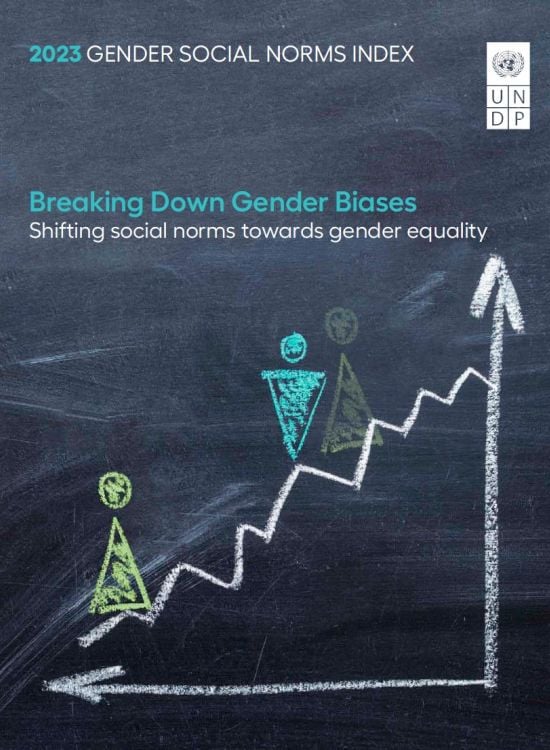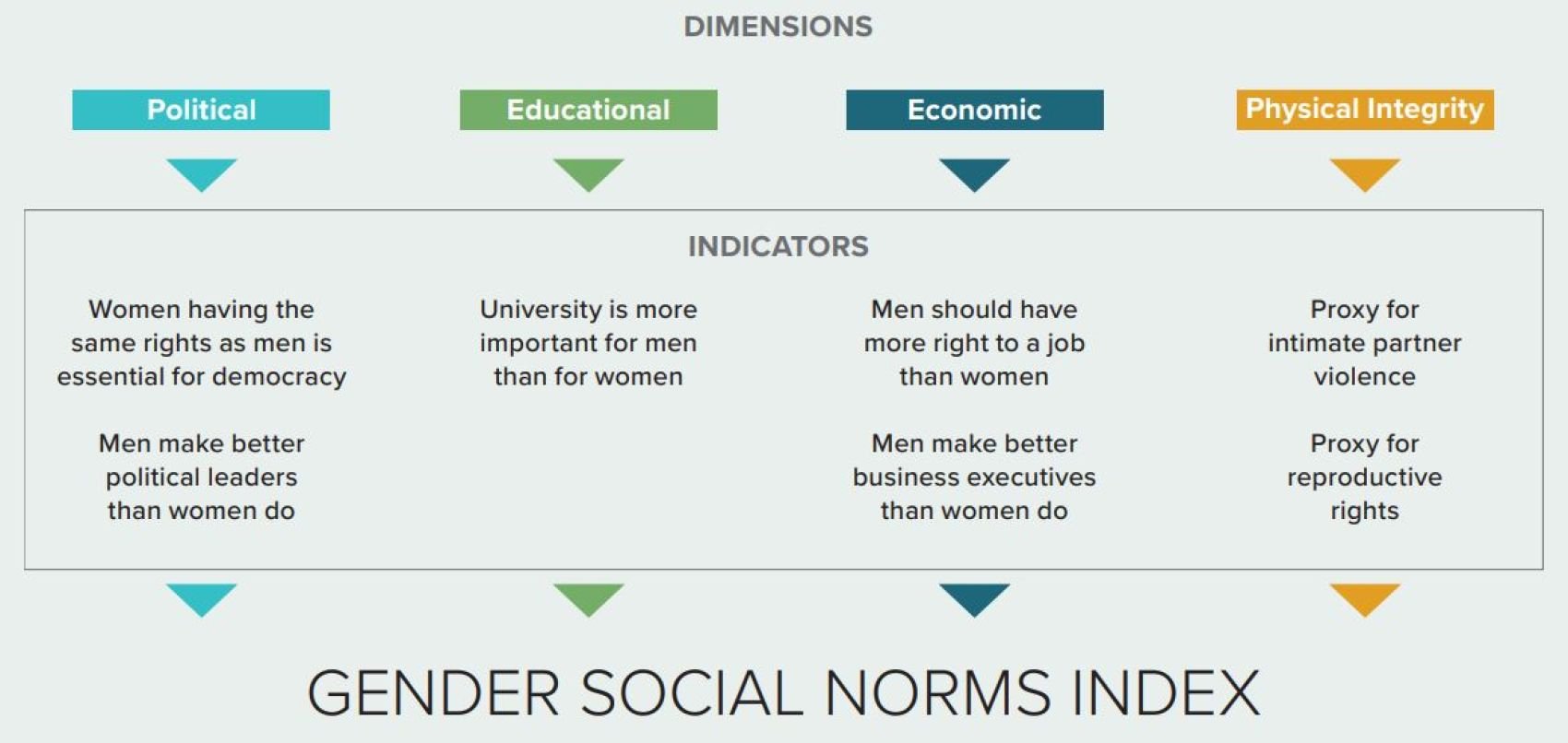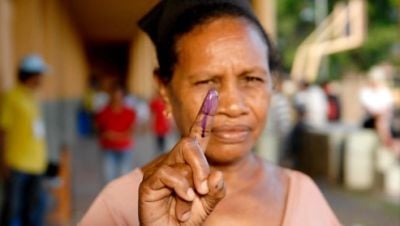2023 Gender Social Norms Index (GSNI)
Breaking down gender biases: Shifting social norms towards gender equality

UNDP (United Nations Development Programme). 2023. 2023 Gender Social Norms Index (GSNI): Breaking down gender biases: Shifting social norms towards gender equality. New York.
2023 Gender Social Norms Index (GSNI)
Breaking down gender biases: Shifting social norms towards gender equality
Without tackling biased gender social norms, we will not achieve gender equality or the Sustainable Development Goals. Biased gender social norms—the undervaluation of women’s capabilities and rights in society—constrain women’s choices and opportunities by regulating behaviour and setting the boundaries of what women are expected to do and be. Biased gender social norms are a major impediment to achieving gender equality and empowering all women and girls.
Gender bias is a pervasive problem worldwide. The Gender Social Norms Index (GSNI) quantifies biases against women, capturing people’s attitudes on women’s roles along four key dimensions: political, educational, economic and physical integrity. The index, covering 85 percent of the global population, reveals that close to 9 out of 10 men and women hold fundamental biases against women. Nearly half the world’s people believe that men make better political leaders than women do, and two of five people believe that men make better business executives than women do. Gender biases are pronounced in both low and high Human Development Index (HDI) countries. These biases hold across regions, income, level of development and cultures—making them a global issue.
The publication of the 2023 GSNI was supported by financial contribution by the Republic of Korea.
Note: The GSNI draws upon data from 91 countries, encompassing the World Values Survey waves 5 (2005-2009), 6 (2010-2014), and 7 (2017-2022), with the latest update reflecting information as of 12 January 2023.


